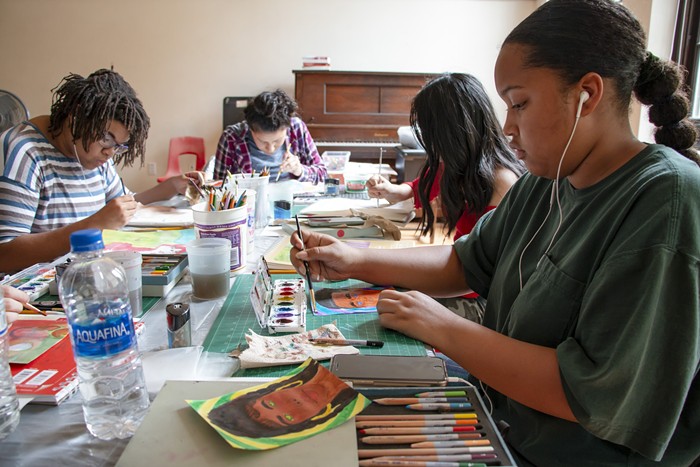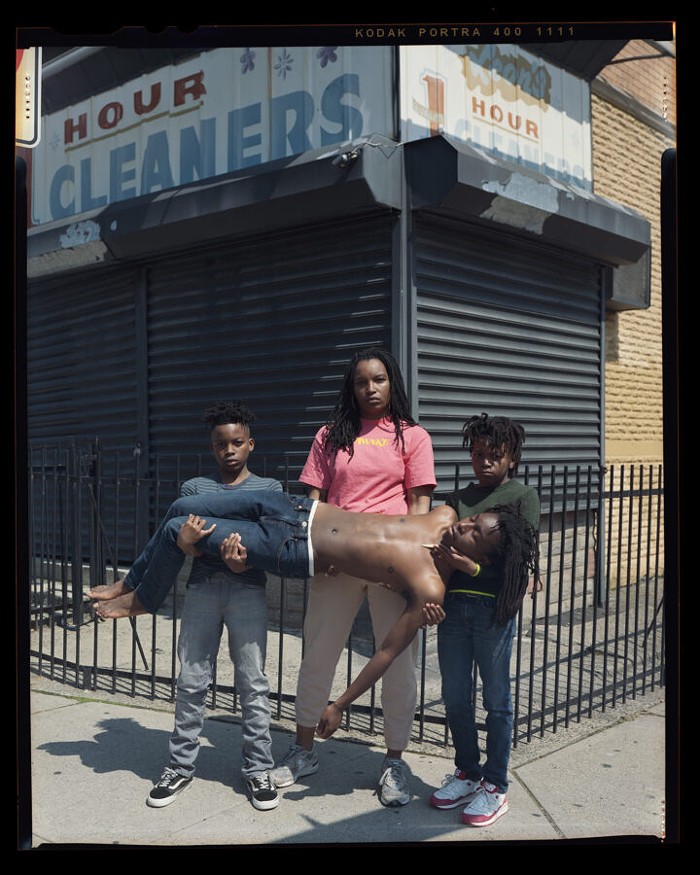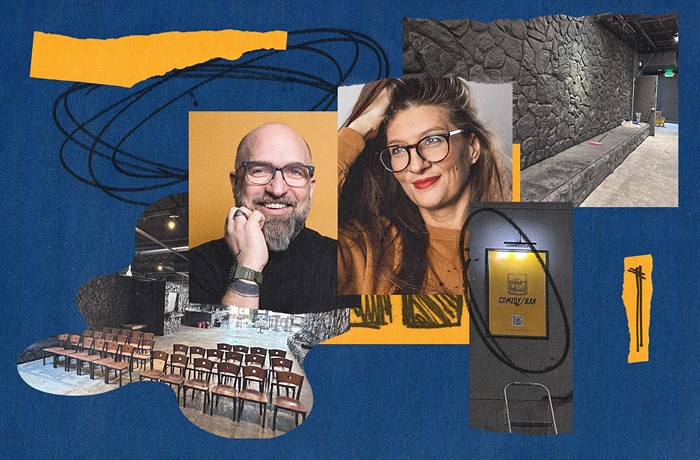
Seattle’s mayoral candidates all agree that arts and culture play an important role in the city’s post-pandemic recovery, but not every candidate has a clear vision for reviving the arts after over a year of closures and restrictions.
Yesterday evening, eight mayoral candidates had a chance to elaborate on their arts recovery plans at an in-person forum at the Langston Hughes Performing Arts Institute. Hosted by a coalition of arts groups, the two-hour forum was closed to the public but live-streamed via the Seattle City of Literature Facebook page. You can watch the whole thing here.
Responding to questions posed by moderators Vivian Phillips, an arts producer, marketer and civil advocate, and author and radio journalist Marcie Sillman, each candidate explained how they would support—and importantly, fund—Seattle’s arts communities in the next stages of recovery. Candidates explored issues such as basic living wages for artists, the Cultural Space Agency, the city’s admission tax, and how they would address other pressing issues.

The forum was a place for Colleen Echohawk to shine. A former executive director of the Chief Seattle Club, she articulated her plan to support working artists and address homelessness at the same time. Echohawk referenced her work with ?ál?al, a housing project by and for Native people in Pioneer Square, and Native Works, a program that provides paid arts opportunities, training, and mentorships for underhoused Indigenous people.
“I’m not talking about something theoretically,” she said. “This is something I have done and I will continue to do as mayor of the city. One of the things I love about [Native Works] is we are actually able to pay artists to do their art and bring healing and restoration to our community. We need that more than ever as we come out of COVID.”
Echohawk also championed the idea of basic income programs for artists—which all candidates vocalized some kind of support for—committing to explore making that happen through partnerships with the Office of Arts & Culture and the Office for Civil Rights. She expressed her enthusiasm for the Cultural Space Agency, a public development authority that seeks to acquire, develop, and activate spaces for the arts, and she also supported the launch of Hope Corps, a creative workforce program introduced during the pandemic that was never implemented.
Architect Andrew Grant Houston was the only candidate who explicitly mentioned divesting funds ($10 million, to be exact) from the Seattle Police Department and investing them into the arts. Houston said he wanted to increase livability for artists by securing resources for long-term, affordable housing, especially through strategic acquisitions and rent controls, as well as through his plan to invest $100 million each year into the Equitable Development Initiative.
Houston advocated for mixed-use housing that includes art components. He also wants to raise the minimum wage to $23 by 2025, create more protections for freelancers, and pilot a universal basic income plan. Houston chided what he described as the “Seattle process,” or, agonizingly slow incrementalism in the face of dire crises. “We have 10 years to cut our emissions in half,” he said. “I am focused on building new systems. I am running as mayor because the mayor sets the agenda.”

Former state legislator Jessyn Farrell was the only other candidate who specifically mentioned climate change, and pointed out that because making art typically has a low carbon footprint, it’s an excellent sector to invest in as we shift towards a green economy. To create stability for artists, Farrell said, “We need to go big on housing affordability and we need to invest in social housing.” She explained the need to partner with community land trusts, and advocated for a portable benefits package. She also saw opportunities for arts programs to be used in new ways for youth and educational programs, especially when it comes to healing trauma, and could be used in a “deeply intersectional approach” to reducing gun violence.
Former director of economic development for SEED Seattle, Lance Randall, talked about the need to bring arts funding from both public and private sectors. He gave the example of working with artist Moses Sun, whom Randall helped secure an opportunity to paint a mural in Columbia City. After that, Sun had more opportunities to make art with Facebook and Starbucks. “I can't say this enough: here’s an opportunity for all the wealth we have here in Seattle — to get the private sector to contribute to programs like this, [and] to support arts programs and other programs throughout the city,” he said.
Other candidates were more generalized in their approach to revitalizing the arts. Art Langlie, executive vice president of Holmes Electric, said that Seattle’s budget is limited partly due to spending so much on the “houseless problem,” implying that once it improves, then more money could go towards the arts. He suggested the idea of providing discount vouchers to arts events, called “Arts Bucks.”
Candidate and former Seattle Supersonics member James Donaldson recognized the need for arts, especially as it related to education and youth development, but offered little in the way of innovative contributions. Candidate and pastor Don L. Rivers evoked his proximity to Motown’s greats, but when it came to policy, he only went as far as his “3 L’s:” Listening, Learning, and Leading, and not much else.
Former City Council president Bruce Harrell gave some mixed, if honest, messaging about his plan for the arts. On one hand, he said the arts “saved his life,” and referenced his efforts to revive the Royal Esquire Club, where he is chairman. He also admitted he doesn’t have very close ties to the arts, “but I know I’ll work the hardest.”


















